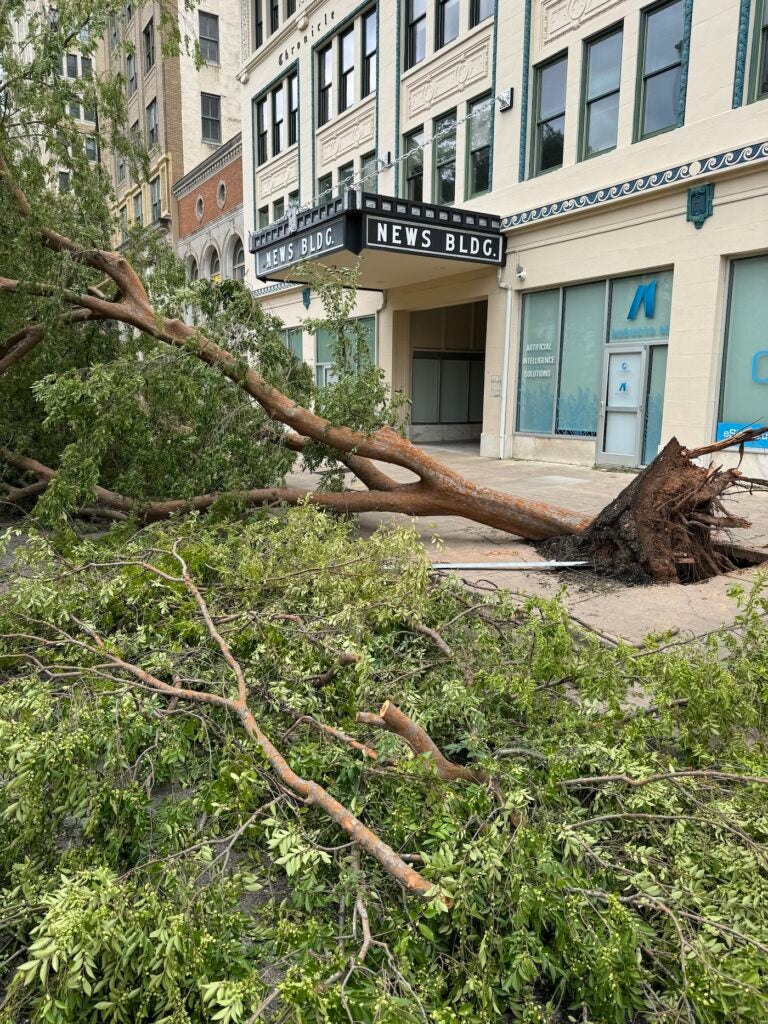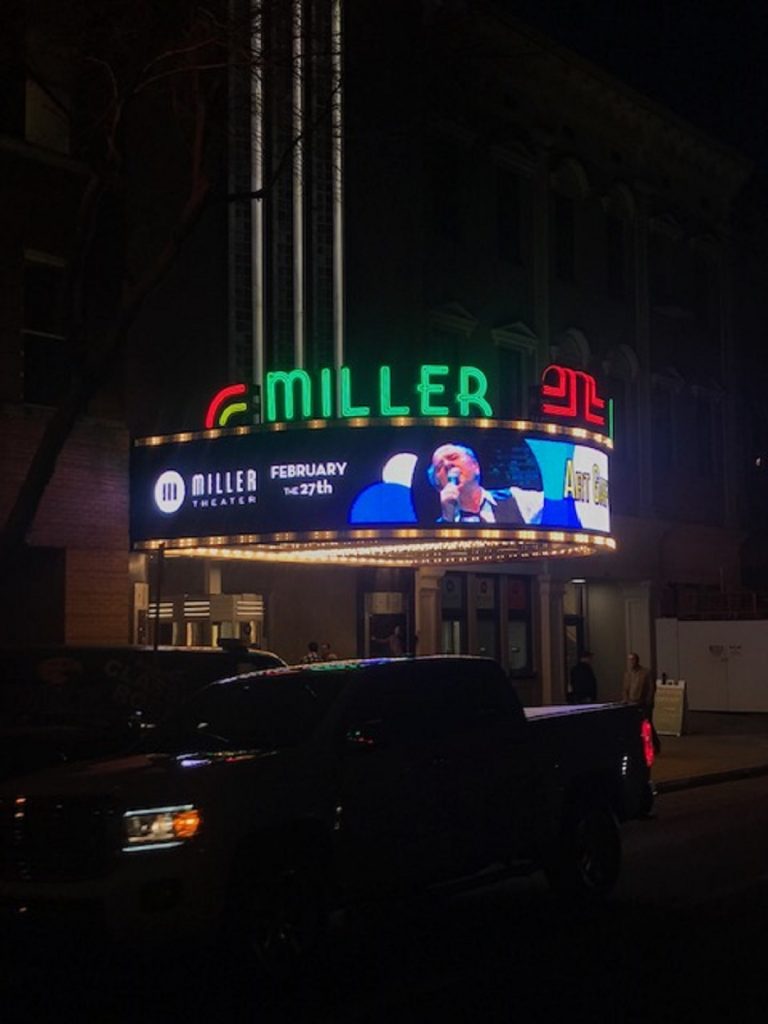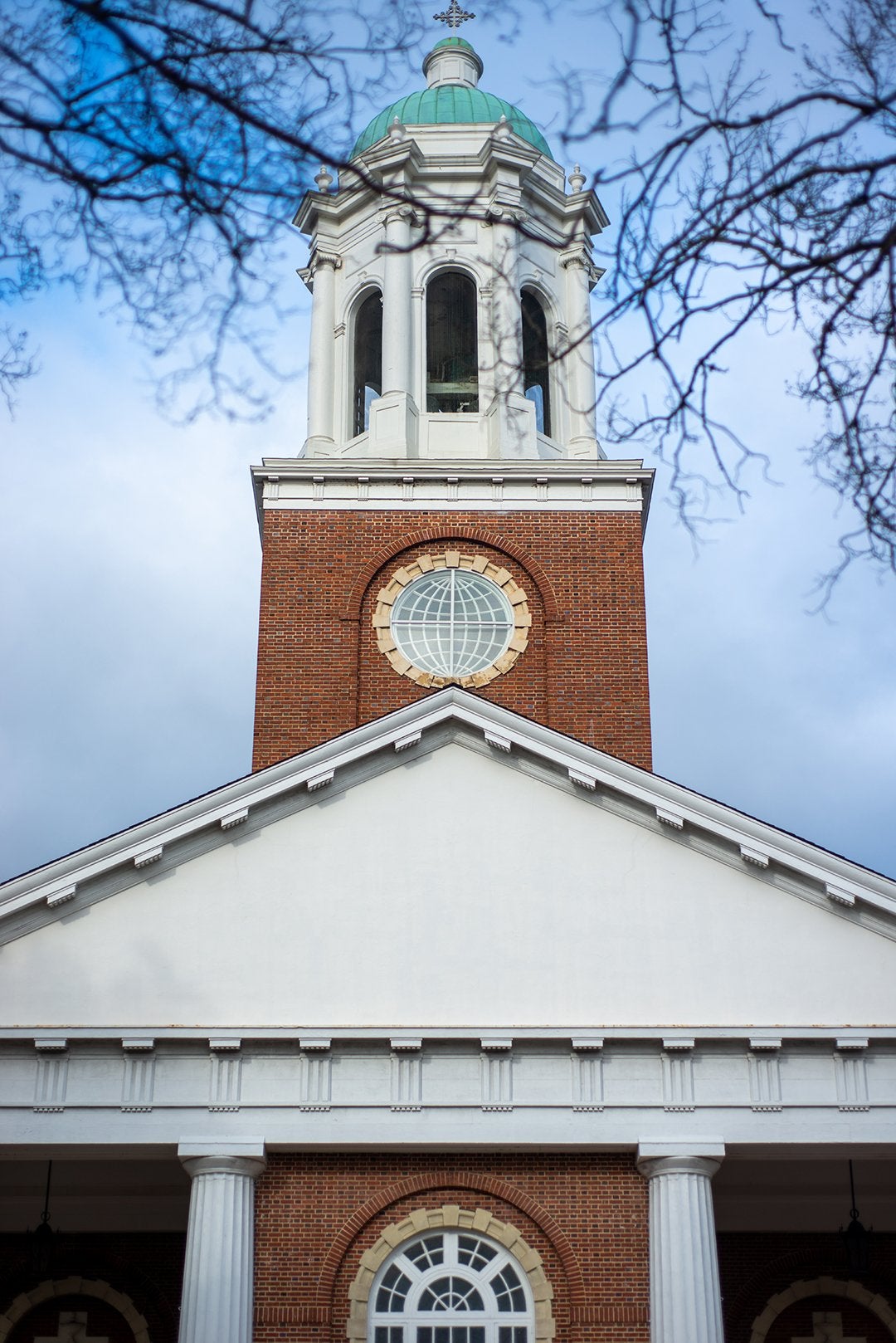By the morning of September 27, 2024, word was already burgeoning throughout the CSRA of neighbors, friends, family members scrambling to reorient themselves amid what felt like devastation—and in many cases, was exactly that—while also maintaining solidarity through acts of generosity that proved both contagious and renowned.

The scene of downtown Augusta the morning after Hurricane Helene was no different. Streets were mostly bare save for a few vehicles and locals assessing the damage, mighty trees felled, roots exposed amid debris.
Local news and personal conversations over the days and weeks that followed were replete with anecdotes of struggling, worrying, sharing and giving. This is exemplified in how two downtown staples, both with roots in the city’s history, fared in the storm’s aftermath.
The Miller Theater on Broad would suffer some $250,000 in damage to its roof. Thursday night, the staff at the Miller Theater had been expecting to spend the following day preparing for a concert that evening, the opening night of the Augusta Symphony’s 70th season.

“Instead, we were checking in on one another, realizing the gravity of what had happened, and having to quickly pivot,” said Katie Brooks, marketing director at the Miller. “We all jumped into high gear first and foremost to check on one another and then to come and check on the theater. Next, we started reaching out to patrons, promoters, and artists to reschedule and update them on the situation.”
Saint Paul’s Episcopal Church, the towering parish alongside the Riverwalk, older than United States, would become a hub for bewildered, and in many cases devastated, locals.
“By sheer luck, we didn’t lose power. And by sheer grace, we found ways that we could share what we had with our neighbors,” said Rev. Eric Biddy, rector of Saint Paul’s, who with assistant rector Rev. Kimberly Dunn and church staff opened the church doors to those in need, of which there were many.
After Biddy posted on social media that the church would welcome people to come rest, charge their phones and other devices, both the helpers and the helped would come in droves.
The church had been geared up to serve participants of Ironman Weekend, complete with fixings for its annual pasta dinner. This would go on to help feed scores of people dropping in to the parish hall, trying to track their families’ whereabouts, using the Wi-Fi to catch up on classes or work, and in some cases volunteering to aid those in even worse straits.
“Buona Cafe talked me through breaking into their roastery to liberate food from their fridges before it went bad,” he said. “Parishioners brought food from their houses, and once it was obvious that no one was getting power back soon, we started cooking that food and giving it to anyone who wanted it.”
Biddy recalls one family of parishioners whose home was severely damaged in the storm, who managed to take a truckload of supplies back to help neighbors who had been blocked in. He also remembers unhoused folk nearby taking refuge in the church’s day shelter.
“I hope that I don’t forget any time soon that for many of the people of God in this town, normal life is also an emergency,” he said.
Both Methodist and Episcopal organizations from just outside areas most affected by the storm trucked in more food and water to replenish coolers and people with hot meals. There were instances when the church could arrange to send food, water or ice to those still trapped in their homes.
“The people of Saint Paul’s were heroic,” said Biddy about the parishioners, as many of those who came to the church for help, once their own basic needs had been addressed, would come to the aid of others. “In my own understanding, it was deeply religious, theological work. But in some senses, we were just a platform for Augustans to help other Augustans.”
This kind of solidarity was not absent among the staff at the Miller, some of whom were also trapped in their homes for a time.
St. Paul’s would run its emergency shelter for about three weeks. The first week saw some 50 people a day at the parish hall, Biddy estimates. As the church’s neighbors, such as Buona Café, gradually had their power restored, the number trickled down.
The National Guard would set up a distribution point in the parking lot behind the depot on Reynolds, across the train tracks from the church. By the third week the church was serving mostly troops who would come in for respite from the heat, charge their phones or trade hot food for MRE’s.
One year later, the Miller is accepting donations for its Raise the Roof Fund, to recover the cost of its repairs.
“I cannot emphasize enough how strong our team is,” said Brooks. “We have a genuine care for one another, our patrons, and our community. While no official policies were impacted, I think as individuals and as a team were changed.”
Biddy and Dunn look at both their church and the city as having acted as “walking sacraments,” setting aside trivial differences to aid and console one another amid trouble.
“This way of being “church”, since Helene, has helped us and our community to recognize and remember that genuine and inclusive hospitality,” said Rev. Dunn. “For many, are beacons of light that offer and perpetuate hope, vitality, and love in what can seem to be a dark and lonely place.”
Skyler Q. Andrews is a staff reporter covering general reporting for The Augusta Press. Reach him at skyler@theaugustapress.com











